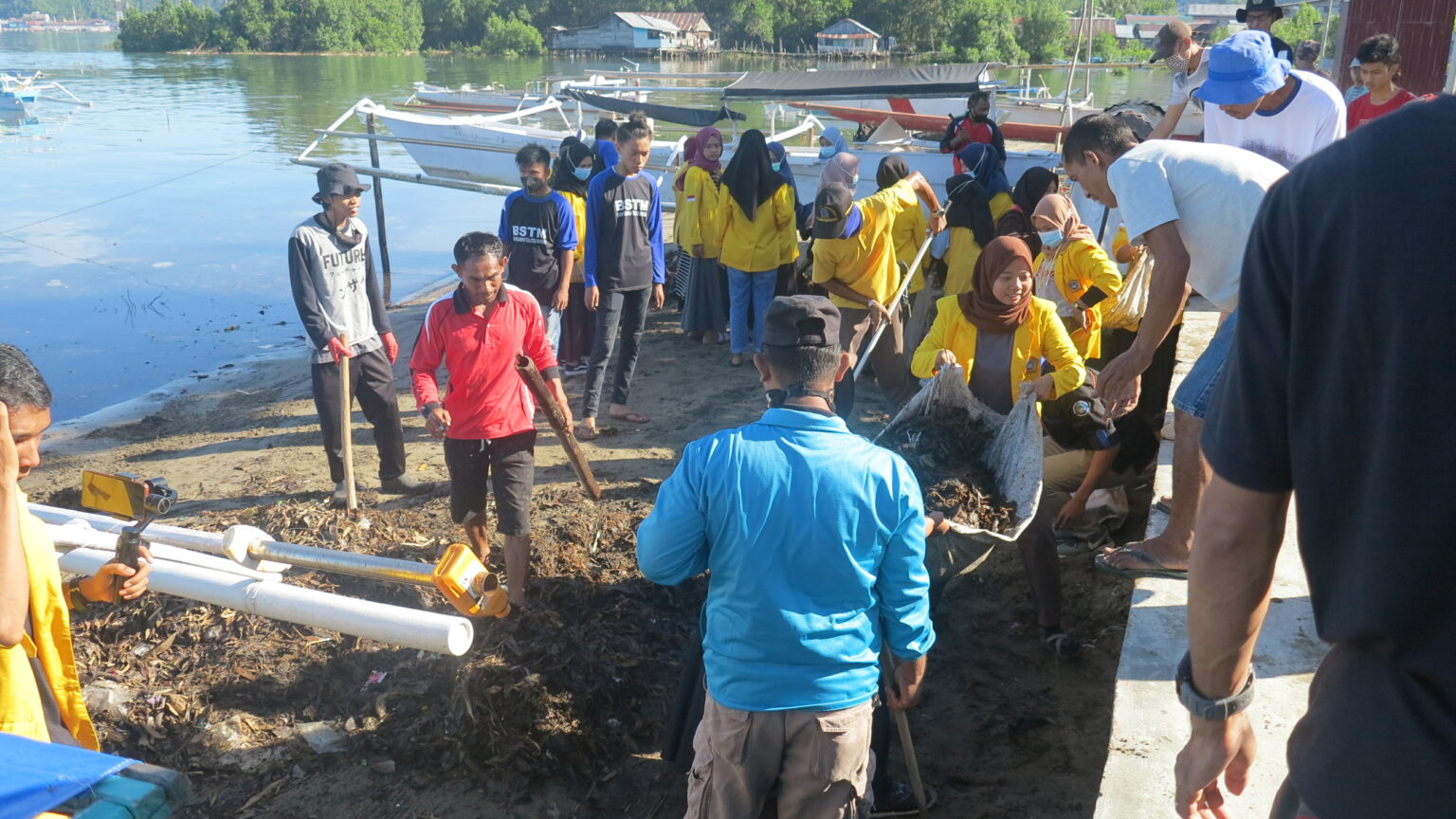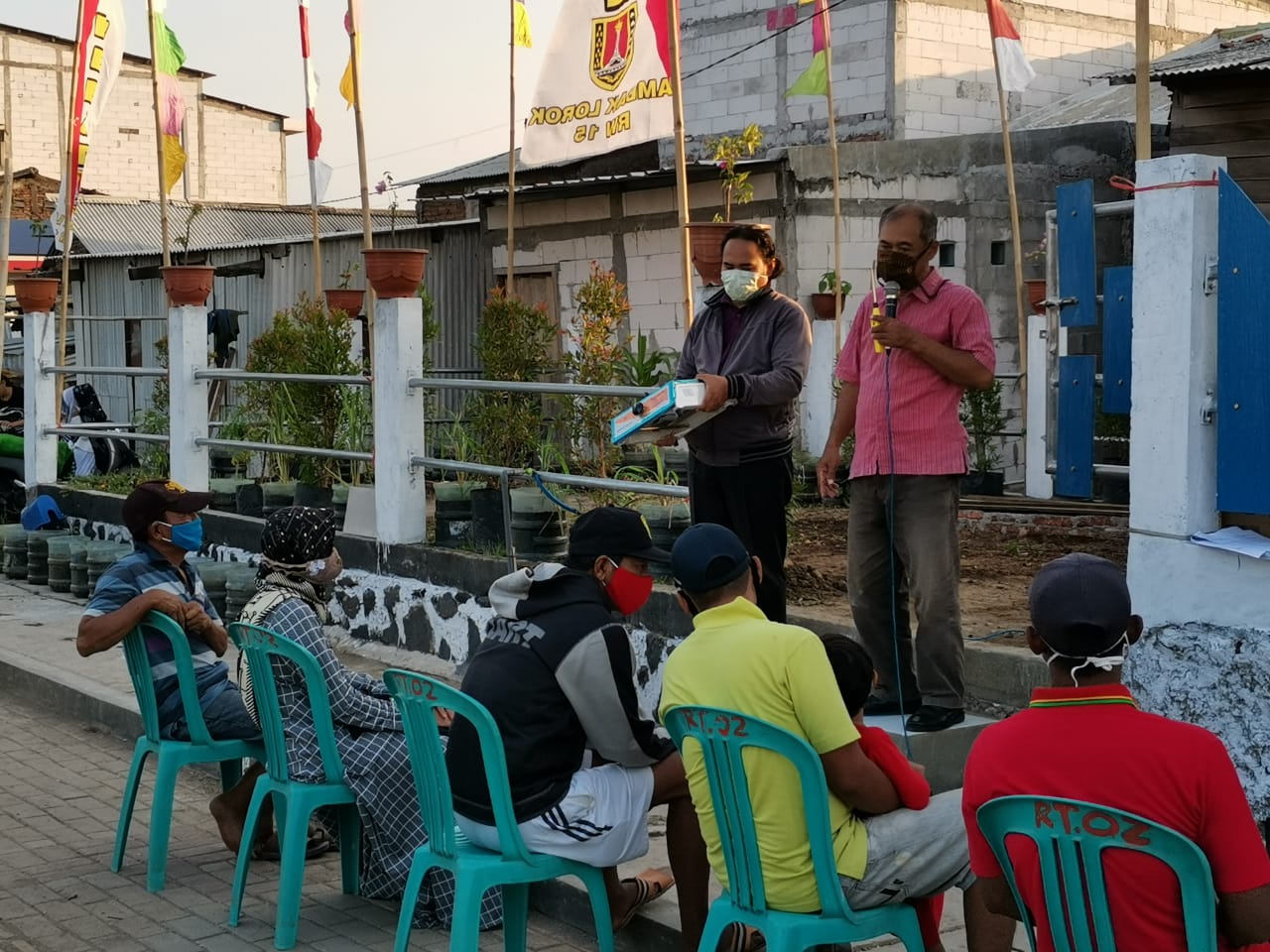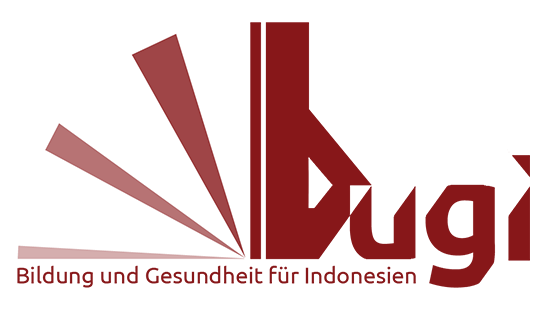About Us

Who are we?
We, “Education and Health for Indonesia” (BUGI), are an association of committed people with different backgrounds, living in Germany and sharing the common goal of making a difference in Indonesia. We see great potential for improvement, especially in the areas of education and health, and want to fill this niche in cooperation with our partner organizations in Indonesia.
In 2012, as a group of Indonesian students living in Germany, we came up with the idea of supporting projects in education and health for our homeland. Since then, with supporters from different countries, we decided in August 2014 to officially name our initiative BUGI. In March 2015, we were registered as a non-profit association with headquarters in Hanover.
We are already well connected throughout Germany. Alumni, student, and partner networks exist both in Indonesia and Germany.
What are our goals?
A country is shaped by the interplay of various factors, and we are convinced that education and health are two essential pillars of a society. These two aspects are central to our mission. We strive for a strong education and health system in Indonesia, with the goal of establishing equal access to education opportunities and healthcare for the Indonesian population.
Factors such as limited access to education and lack of awareness are crucial. Here we must begin, tackling problems such as child malnutrition, disease, and the lack of school and vocational training. Through our work, we want to raise awareness about health risks while also pointing out opportunities that can be opened up through education and awareness. This also includes incorporating current scientific findings into the wider population.

Strengthening Social Security
Like in many countries facing development policy challenges, Indonesia is also rich in natural resources. The country is abundant in mineral resources such as coal, tin, gold, and nickel. Additionally, there are vast forest resources as well as palm oil, coffee, tea, cocoa, and other agricultural products. However, the problem lies in utilizing this wealth of resources effectively. This leads to a chain of problems. To understand these issues, one must also understand Indonesian society.
The majority of the population in Indonesia lives in uncertainty about the coming days.
Concerns about having enough food, family matters, and often health issues dominate everyday life. People live day to day, taking whatever they can get. A stable life with secure income is utopian for many.
Under these circumstances, planning for the coming years—or even the next weeks—is nearly impossible. Children’s education also often suffers due to this uncertainty.
This issue often results in lethargy, stemming solely from the struggle to survive, to support one’s family, and to work. Personal abilities and talents are given little space, as time and money are lacking for career freedom. With no resources, one cannot even begin to discover what one truly wants to do or explore one’s own strengths. People grow up with the mindset that such things are not worth considering.
Strengthened by the awareness of the major class differences: The gap between rich and poor in Indonesia is huge and continues to grow.
Expanding existing wealth is not difficult and is often accelerated by corruption and the exploitation of poorer people. The less affluent or even poor people see no way to improve their living situation. They often lack the knowledge and necessary drive, as they are consumed by their exhausting daily lives.
Referring back to the issues raised at the beginning, it becomes clear that under the given circumstances, it is not possible to make use of the country’s natural resources. Behavior patterns and ways of thinking are too entrenched to take matters into their own hands.
One of our goals is to change these perspectives.
Encouraging people to pursue a career they truly wish to practice and in which they can fulfill themselves.
For example, we aim to leverage the fact that our members and supporters come from a wide range of professional backgrounds.
We want to show that there is a place for everyone where their talents can be expressed, and we encourage them to seek out this place. Because a society lives and develops through the diversity of its individuals.
In this context, bridging the gap between rich and poor is also part of our mission. It is not possible to close this gap within a few years, but it is possible to reduce it.
A better life can become a reality for those who want it and have the courage to fight for it, when the wealth of the country is distributed more fairly.
Crucial to our work are education and collaboration with the people. Together with them, we want to design and build a new, sustainable model.
Executives
Agnes Hapsari
1st Chairperson
Limock
2nd Chairperson
Rafael Anindya Krishna Siddharta
Treasurer
